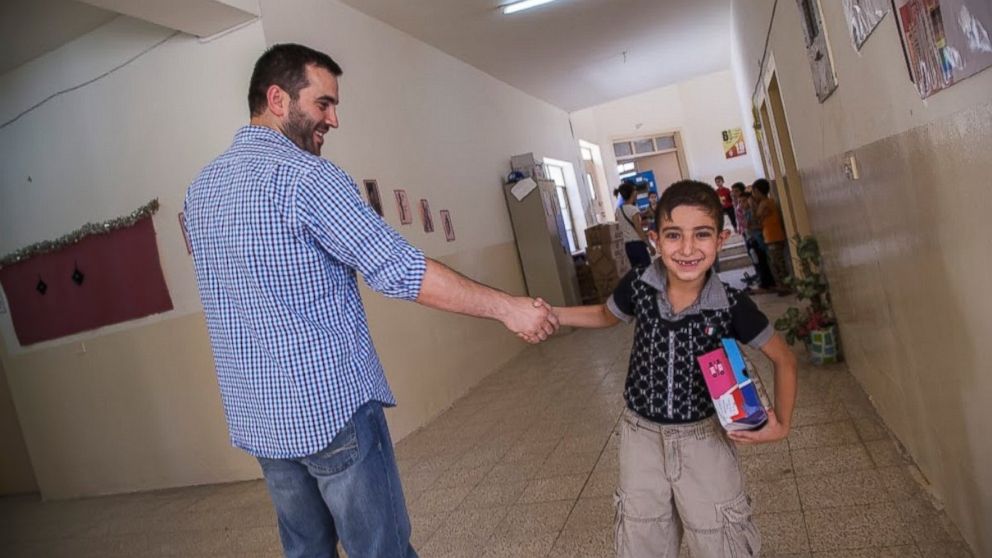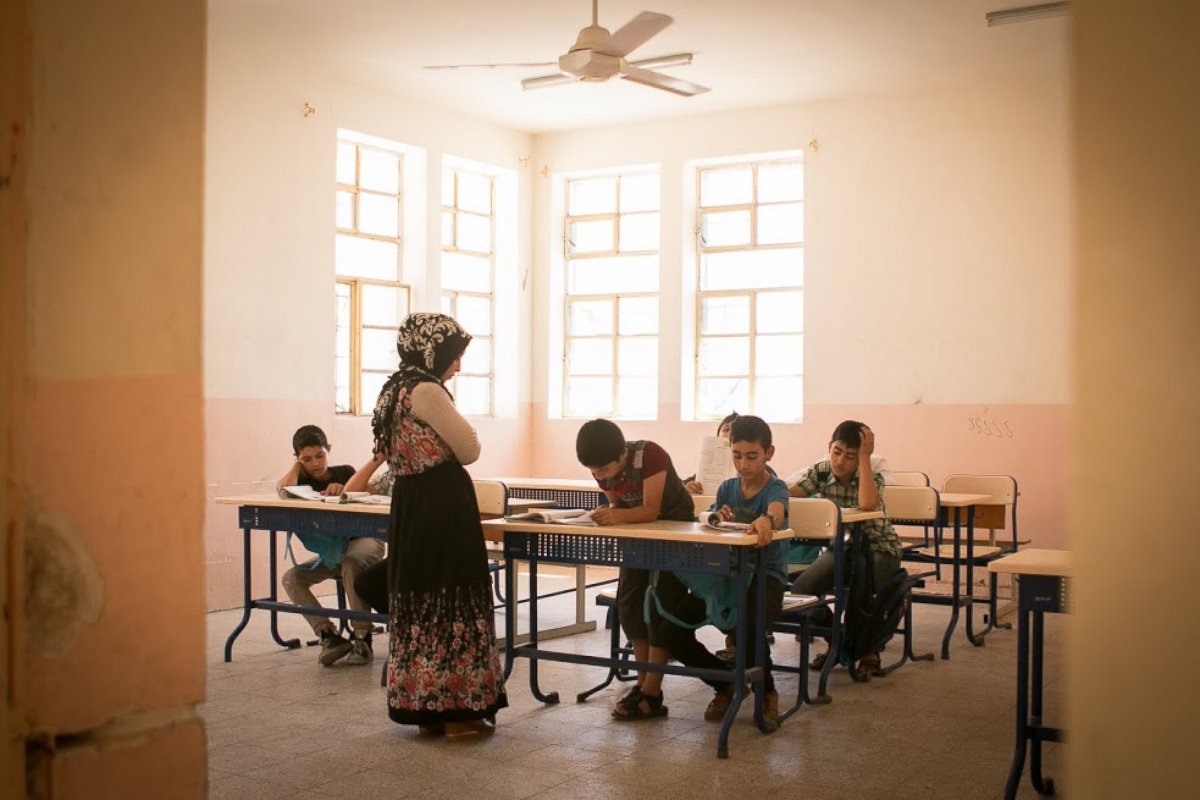With Country In Turmoil, Iraq War Veterans Become Humanitarians
Non-profits are providing aid at a time when Iraq desperately needs support.

— -- Jonathan Webb was sitting in the chapel of the U.S. Embassy in Iraq when he heard a message that would alter the course of his life. An Iraqi pastor recalled to the crowd the moment when American soldiers arrived in his country in 2003. The pastor said he was happy because it meant his congregation could come out of hiding, worship in public, and build a church facility.
That message, that some Iraqis were excited about the soldiers’ arrival, was a turning point for Jonathan, who was working for the private military security firm Blackwater in Baghdad. He had served in the Iraq War before returning to the country a few years later to work for Blackwater. Jonathan admits that he hated the Iraqis who killed his friends, but the pastor changed his way of thinking.
“I was focusing on me the whole time when I realized that people were actually very, very thankful for what we had won in a very large way,” Jonathan said. “I could spend the rest of my life bitter at these people, or I could learn to love them.”
And love them he did.
In 2007, Jonathan and Maxwell Quqa, who served in Iraq as an American bilingual bi-cultural advisor to U.S. personnel, founded the Iraqi Children Foundation, which assists orphans (there were 5 million Iraqi orphans in 2013) by providing a safe place for them to learn reading, writing, math, and social skills. The organization aims to get orphans off the streets of Baghdad where they can be influenced by terrorist organizations. Jonathan said the idea for the organization originated when he started helping an Iraqi church collect blankets.
How Iraq Spiraled Out of Control
WATCH: What Is The White House Doing To Address The Humanitarian Crisis In Iraq?
Why Control of a Terrifying Dam in Iraq Is Life or Death for Half Million People

“It started small in my mind,” he said, “We’re just going to help some of these kids stay warm during the winter…from there it blossomed.”
He opened two clinics to provide free care for orphans and widows. One clinic still operates today, along with the facility where children receive a free education.
Jonathan is not the only Iraq War veteran turned humanitarian. Zack Bazzi, along with fellow Army veterans Scott Quilty and Patrick Hu, founded TentEd (Tent Education), a non-profit which supports the education of Syrian children in two refugee camps in the Kurdistan Region of Iraq.
After his military service, Zack spent time working as a consultant in Iraq for a development firm and came to understand the difficulties facing Syrian refugees. He and his co-founders designed TentEd as a small, flexible, rapid-response effort that complements the ongoing operations of bigger, established organizations in the area.TentEd is an initiative of the Education for Peace in Iraq Center.
Like Jonathan, Zack’s experience as a soldier greatly influenced his decision to launch a non-profit in Iraq.
“Wherever life takes us [veterans] after the war, Iraq still tugs at us,” Zack told the Huffington Post in April. “At the most random of times, you might find yourself wondering what the roads you spent so many hours patrolling look like these days or if any of the local friends you made are still alive. In some ways, it's that tug that has motivated so many other fellow veterans to want to help me make TentEd a reality. Perhaps it's a way to reconcile the whole thing.”
Jonathan’s “business as usual” attitude can be attributed partly to his military experience.
“For me, there were plenty of bad guys in Baghdad when I was moving around [there],” he said. “There was a vacuum, and they’re just a group of individuals filling that vacuum.”
And while the Iraqi Children Foundation facility is not under threat of ISIS at the moment, it’s hard to imagine Jonathan ever backing down.
“When a bunch of people start getting killed in Baghdad on a regular basis, it’s kind of something we’re used to,” he said. “We’ll just keep trying to operate as well as we can in that situation.”
Fundraising for an Iraqi non-profit
Violence is not the only obstacle these non-profits encounter. Jonathan and Zack also described the difficulty of fundraising for an organization that operates in a country whose name conjures up memories of a deadly war.
“It [fundraising] continues to be difficult because I have to be honest with you, people were just done with the conflict. They didn’t want to hear anything about Iraq,” Jonathan said. “They’re exhausted from the resources that have been spent in both Afghanistan and Iraq. They’re exhausted from the lives that have been lost and those that have been injured.”
Zack said Americans are “fatigued with Iraq,” but the public is still very supportive of its veterans, who have been a driving force behind fundraising efforts for TentEd.
“The fact that hundreds of individuals, some of who know very little about the Middle East, supported TentEd, in some way, shape or form, speaks volumes about our culture and the altruistic values that underpin American society,” Zack said. “We are, in many regards, a nation of givers.”
Iraq
Jonathan and Zack’s organizations operate in a time when humanitarian aid to Iraq is dwindling. In fact by 2015, the United States Agency for International Development (USAID) will cease to send any money to Iraq.
Ellen Laipson and Russell Rumbaugh of Stimson, a global security think tank, explained in a February article that the high funding that once was readily available for a variety of projects “has been replaced with a new reality where Iraq competes with other countries for various aid and assistance support.”




